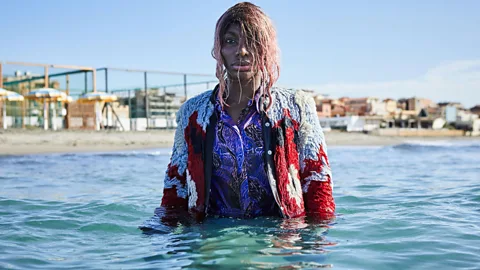I May Destroy You and how it represents the future of TV
Leila Latif
Features correspondent
 Alamy
AlamyIn BBC Culture's poll of the greatest series of the 21st Century, Michaela Coel's blistering drama was the most recent top 10 entry. Leila Latif considers its revolutionary power.
In the penultimate episode of the BBC/HBO drama series I May Destroy You, a character turns to Michaela Coel's Arabella and for a moment seems to break the fourth wall to ask "I thought you were writing about consent">window._taboola = window._taboola || []; _taboola.push({ mode: 'alternating-thumbnails-a', container: 'taboola-below-article', placement: 'Below Article', target_type: 'mix' });
